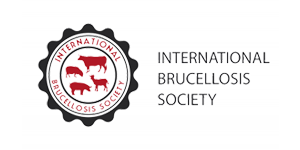Abstract
OneHealth is the collaborative efforts of multiple disciplines to attain optimal health for people, animals and the environment. While few studies have quantified the benefits, it is accepted that OneHealth strategies are necessary to combat brucellosis, a consensus supported by the fact that historically the concept owes much to observations made on brucellosis by Schwabe and Steele, and by experiences in the eradication of cattle and small ruminant brucellosis. Furthermore, the analysis of brucellosis in conflicting scenarios supports the inclusion of political and ethical considerations in the OneHealth concept. In brucellosis, OneHealth actors include Public Health and Veterinary Services (with emphasis on notification systems), microbiologists, medical and veterinary practitioners and breeders, and brucellosis awareness plus a correct use of diagnostic, epidemiological and prophylactic tools are essential. Nevertheless, although the concept is clear, a series of inherited and new challenges pose significant obstacles, some aggravated by global warming and breeding intensification to meet food demands. Studies in endemic scenarios show that disease awareness, stakeholder sensitization/engagement and breeder trust are unresolved issues, all particularly difficult in brucellosis because of the protean characteristics of this zoonosis. Of paramount importance areinfrastructural weaknesses, often accentuated by geography and climate. Capacity building faces misconceptions derived from an uncritical adoption of diagnostic and eradication strategies that were successful in countries with suitable means, and is hampered by technical matters requiring reference laboratories in endemic areas, problems not solved by new tools whose value in the real scenario is unknown. Althoughimproving diagnostics and vaccines is challenging, urgent needs are research in semi-domestic or domestic species other than cattle and small ruminants and in wildlife and to develop a safer small ruminant vaccine. Results of this research, lessening the infrastructure requirements, realistic capacity building, creating reference laboratories in critical areas and a stepwise implementation of measures not directly transposed from the so-called developed countries are prerequisites for OneHealth implementation in the combat against brucellosis.







